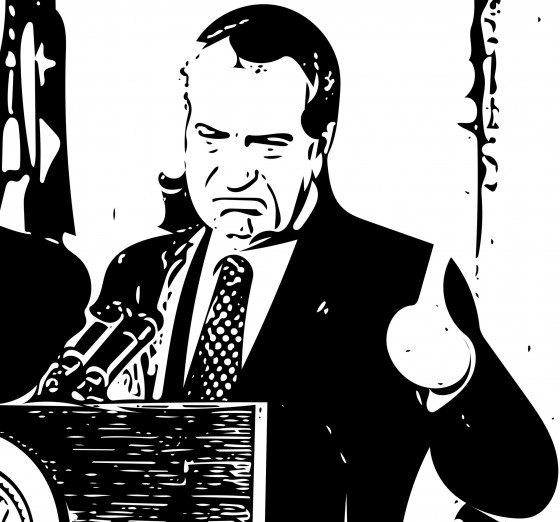The U.S. Congress overrode President Richard M. Nixon’s veto of the War Powers Resolution on November 7, 1973. This resolution ostensibly limits presidential power to wage war without congressional approval, hence Nixon’s veto. Nowadays, however, it is often referred to as the expansive terms for the “Imperial President’s” license to engage in military conduct, and a dereliction of congressional duty to direct the United States’ foreign policy and warfare.
Categories
War Powers

1 reply on “War Powers”
As I explained in a ‘blog entry, either Congress cannot delegate the power to declare war in the first place, or a President cannot veto legislation rescinding that power. Otherwise, Congressional delegation of such authority would be a power to amend the Constitution. In-so-far as a limitation logically implied but unstated on the ability of the President to veto would be quite extraordinary, I think that the stronger case is that the power cannot be delegated.
(Of course, as noted in that entry, the same logic holds for the regulatory structure so dear to technocrats. Its constitutionality is implausible.)